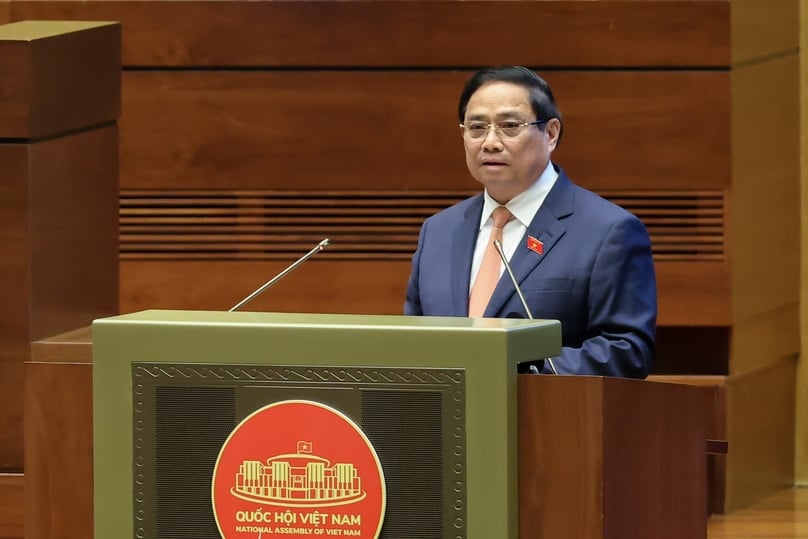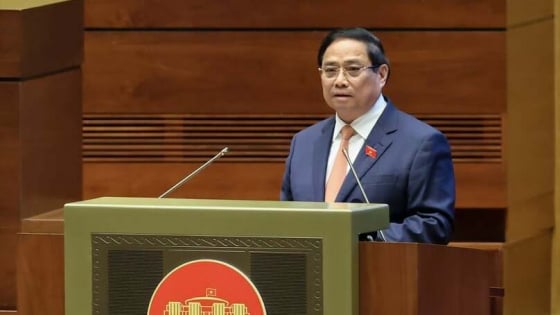By
Hai Yen
Mon, October 20, 2025 | 3:33 pm GMT+7
Vietnam plans to complete a comprehensive legal framework for its financial, real estate, and gold markets by 2026 as part of a broader effort to modernize market infrastructure and accelerate economic growth, said Prime Minister Pham Minh Chinh.
Presenting the government’s 2025 socio-economic report and 2026 development plan at the opening of the National Assembly’s 10th sitting on Monday morning, Chinh said the legal framework for key markets, including finance, securities, real estate, gold, labor, and science and technology, will be finalized next year.
“All these markets must be fully established by 2026,” he stressed.
 Prime Minister Pham Minh Chinh speaks at the opening of the National Assembly’s 10th sitting on October 20, 2025. Photo courtesy of the government’s news portal.
Prime Minister Pham Minh Chinh speaks at the opening of the National Assembly’s 10th sitting on October 20, 2025. Photo courtesy of the government’s news portal.
The State Bank of Vietnam (SBV), or the central bank, will pilot a domestic gold trading exchange this month. It would be rolled out in three phases, starting with physical gold trading before expanding to bullion and derivative products.
In real estate, the Ministry of Construction aims to launch a national online property trading platform between 2026 and 2027, allowing individuals to buy, sell, and value properties. The platform will cover completed homes, off-plan projects, and land use rights, helping formalize a market long dominated by private exchanges.
The government also plans to develop a data market and pilot a digital asset exchange under strict regulatory oversight. The Finance Ministry is preparing a five-year pilot program that could license up to five regulated digital-asset exchanges before 2026.
Regarding overall goals, for 2026, the government targets GDP growth of at least 10%, per capita income of $5,400-5,500, inflation around 4.5%, and an 8% rise in labor productivity.
Chinh said growth would be driven by emerging sectors such as digital technology, semiconductors, and artificial intelligence, supported by regulatory sandboxes for new business models.
He added that Vietnam will continue simplifying administrative procedures and cutting business compliance costs and time by half compared with 2024. The government also plans to advance institutional modernization and develop special economic zones in Van Don, Van Phong, and Phu Quoc.
In August, the government officially removed the state monopoly on gold bullion production, marking a significant shift in the country’s gold market dynamics.
On the market, SJC gold bars increased by 0.33% to VND151.5 million ($5,751) per tael on Monday after a 1.31% decline over the weekend. Local gold bar rates are currently VND15.5 million per tael higher than global prices. A tael equals 37.5 grams or 1.2 ounces.
